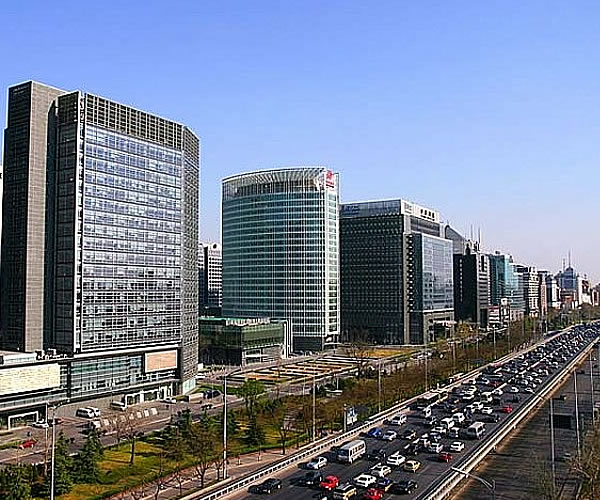
The social security system is based upon guidelines issued by the central government. The National Council for Social Security Fund manages the fund. It is administered at a local level because of the vast size of the nation. The Chinese government actively promotes the development of social welfare, raising funds through various channels to provide social welfare benefits for the elderly, orphans and the disabled. It covers many aspects of care for the people and is sometimes referred to as "mandatory benefits".
After the founding of the People's Republic of China, the government set up a social relief system for the urban and rural poor. In 1993, it began to reform the social relief system in cities, at the same time seeking to try out a minimum living standard security system. In 1999, this security system was established in all cities and county towns throughout the country.
Employers generally handle the administration of mandatory benefits on behalf of their employees. Contributions are made to the social insurance bureau which manages the disbursement of the contributions. The housing fund is separate. These funds can sometimes be managed online, as in Beijing.
ID Card
An ID card is mandatory for all citizens over 16 years old. Citizens within the People's Republic of China must carry identification in public at all times.
The ID number has 18 digits and is a standard code for the political division where the holder is born, date of birth, and sequential code for distinguishing people with identical birth dates and birthplaces. The identity card is the only acceptable legal document to obtain resident permit, employment, open bank accounts, obtain passport, driver licence, application for tertiary education and technical colleges, security checkpoints in domestic terminals of Chinese airports. Documentation is also required for marriages, household registrations and legal cases. Information stored in the identity database for biometric ID cards documents information such as work history, educational background, religion, ethnicity, police record, medical insurance status, landlord's phone number and personal reproductive history.
To find out more about the card, information on the ID card.
Minimum Living Standard Security System
Funds for this purpose are included in the fiscal budgets of the local people's governments. Urban residents whose average family income is lower than the minimum living standard can apply for the minimum living allowance (There is also a rural equivalent). Investigation of the family's income is conducted with the level of which is calculated in terms of the difference between the family per-capita income and the minimum living standard.
Maternity Insurance
Contributions to maternity insurance are made by employers. Pregnant employees are entitled to receive a lump sum to defray the costs of childbirth. During the period of maternity leave from the company the maternity fund will cover payment of salary. However, if the employee is earning more than three times the average salary the amount will be capped.
Occupational Injury Insurance
Contributions to this fund are made only by the employer. The amount of the contribution depends upon the nature of the work being carried out by the employees. The more dangerous the work, the higher the percentage contribution (usually the range is between 0.4 percent to 2 percent of the gross salary).
In the event that an employee is injured at work, the employer will collect evidence concerning the injury and the associated costs and apply for reimbursement from the occupational insurance fund. Note that the employer will still need to pay the salary to the employee during the recuperation period.
Housing Fund
Employers and employees contribute to a housing fund. Administration of this fund is handled by the housing fund center separately from social insurance. This is to encourage people to save money to purchase a house. Funds accrued in this account can be used to make the initial down-payment as well as to repay mortgages taken out when purchasing a house. Individuals that have sufficient funds accrued in a housing fund account can also apply for a lower mortgage rate compared to a normal commercial loan.
Update 12/05/2011
Keep more of your money when transferring funds overseas!

If you want to move money abroad, from China or to China for example, Fexco provides efficient and secure global bank to bank transfers and bespoke payment solutions for both business and personal clients.
Why Fexco
Fexco provides a secure international money transfer service online or by telephone with bank beating fx rates and low fees. Specialises in high-value transfers.
Main characteristics
Fexco will help you to keep your overseas money transfer costs to a minimum.
| Margin | 0.6% |
|---|---|
| Regulator | FCA |
| Fee | £10 < £5K or Free > £5k |
| Mini | £1K |
| Ccy | All (130 currencies, incl ‘exotics’) |
| Services | Repatriation of funds, Property, Regular payments, High Value payments, spot, online, telephone. |
Get an online quote today
When you are ready to make your transfer, John and his team will be available to help you with better rates and an unrivalled service to make sure your funds are delivered securely and speedily.
